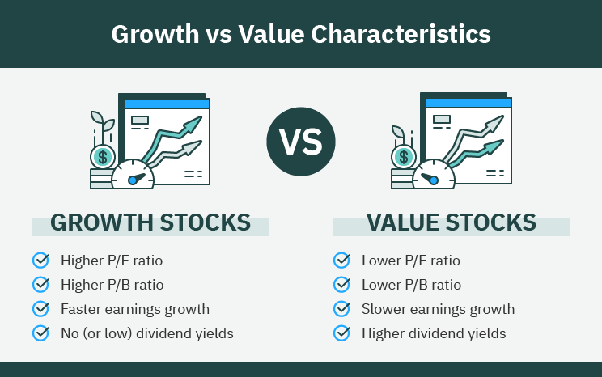Saturday Serendipity
Quote, Value vs Growth, Interesting find.
Hi
Reading time: About 4 minutes
Quote
“You look at where you're going and where you are and it never makes sense, but then you look back at where you've been and a pattern seems to emerge.”
― Robert M. Pirsig, Zen and the Art of Motorcycle Maintenance: An Inquiry Into Values
Value vs Growth in Investing
Many people in investing like to classify stocks into two categories value and growth.
This is what is classified as a ‘growth stock’ and a ‘value stock’. Many people have written about which mode of investing is better. You can read this.
Growth stocks are basically stocks which have very high returns on capital and grow at a very fast rate and the market realises that and hence values it higher. On top of that these companies reinvest their profits back into the business instead of giving dividend to shareholders.
Value stocks are companies which are good but available at a discount to its real value. So maybe the company won’t have a huge earnings growth potential but at the valuations the market is offering the company is attractive. The investors in these companies expect a good dividend.
Now before you listen to my opinion on this I recommend hearing Buffett and Munger.
I have the same opinion as them when it comes to comparing Growth stocks and Value stocks.
Most analysts feel they must choose between two approaches customarily thought to be in opposition: “value” and “growth.” Indeed, many investment professionals see any mixing of the two terms as a form of intellectual cross-dressing.
We view that as fuzzy thinking (in which, it must be confessed, I myself engaged some years ago). In our opinion, the two approaches are joined at the hip: Growth is always a component in the calculation of value, constituting a variable whose importance can range from negligible to enormous and whose impact can be negative as well as positive.”
- Warren Buffett, Berkshire Hathaway Annual Letter, 1993
Growth and Value go hand in hand. Both of them are in the end working on the same principle. You are buying something right now in the hope of it being worth a lot more in the future.
“All intelligent investing is value investing, acquiring more than you are paying for. You must value the business in order to value the stock.” - Charlie Munger
Value Investing for me is something different to what was written in the picture and what I defined as earlier.
Buffett wrote,
We think the very term ‘value investing’ is redundant. What is ‘investing’ if it is not the act of seeking value at least sufficient to justify the amount paid? Consciously paying more for a stock than its calculated value - in the hope that it can soon be sold for a still-higher price - should be labelled speculation (which is neither illegal, immoral nor - in our view - financially fattening). Whether appropriate or not, the term ‘value investing’ is widely used. Typically, it connotes the purchase of stocks having attributes such as a low ratio of price to book value, a low price-earnings ratio, or a high dividend yield. Unfortunately, such characteristics, even if they appear in combination, are far from determinative as to whether an investor is indeed buying something for what it is worth and is therefore truly operating on the principle of obtaining value in his investments. Correspondingly, opposite characteristics - a high ratio of price to book value, a high price-earnings ratio, and a low dividend yield - are in no way inconsistent with a ‘value’ purchase." Warren Buffett
It’s all semantics at the end of the day. We want to differentiate between two strategies when they are best practiced by people when you take the best of both worlds.
I want the valuations of value stocks and the earnings growth potential of growth stocks.
I don’t think I need to write anything more to be honest. The quotes by Buffett are the best way to understand this concept and as Munger would say ‘I have nothing to add’.
Interesting find
That’s it.
Thank you for reading,
Samvit.



